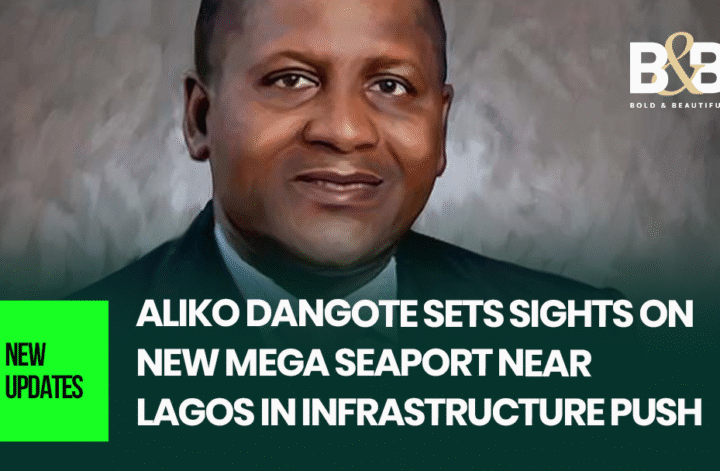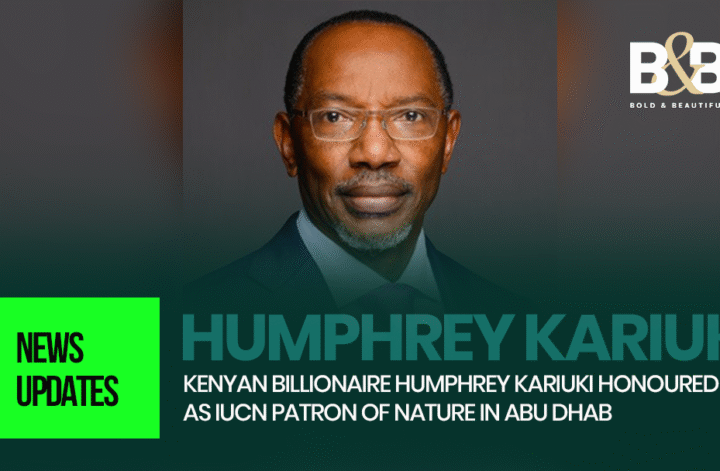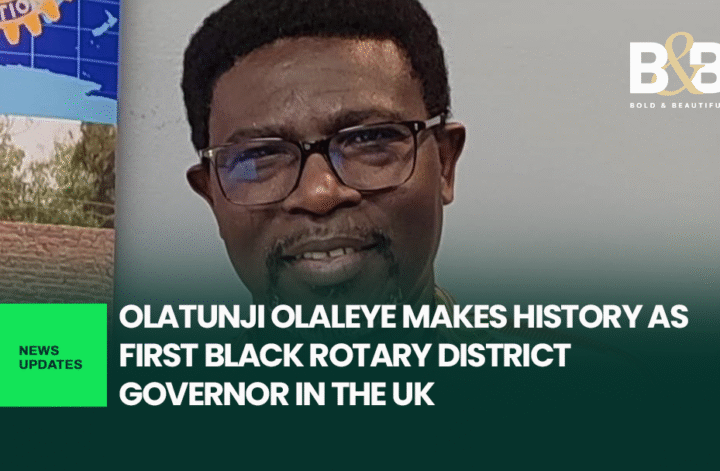Africa’s richest man, Aliko Dangote, is reportedly advancing plans to develop a new deep-sea port on the outskirts of Lagos, further strengthening his grip on Nigeria’s industrial and logistics landscape.
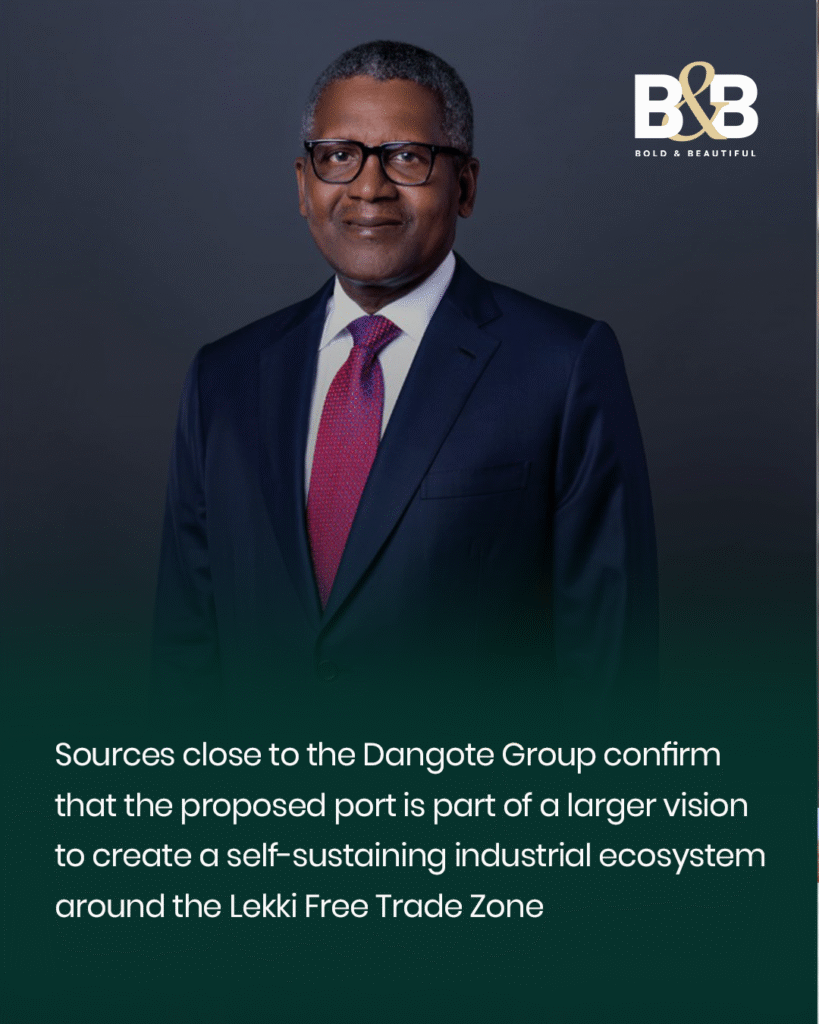
Sources close to the Dangote Group confirm that the proposed port is part of a larger vision to create a self-sustaining industrial ecosystem around the Lekki Free Trade Zone, where the Dangote Refinery and Fertiliser Plant already stand as Africa’s largest.
This new port, which will be privately funded and operated, is expected to relieve pressure from the congested Apapa and Tin Can Island ports while serving as a gateway for high-volume cargo connected to Dangote’s expanding operations in oil, gas, petrochemicals and construction.
“It’s a bold, long-term play that aligns with Dangote’s track record of building where others hesitate,” says one Lagos-based infrastructure analyst. “It’s about more than business. It’s about rewriting Nigeria’s industrial future.”
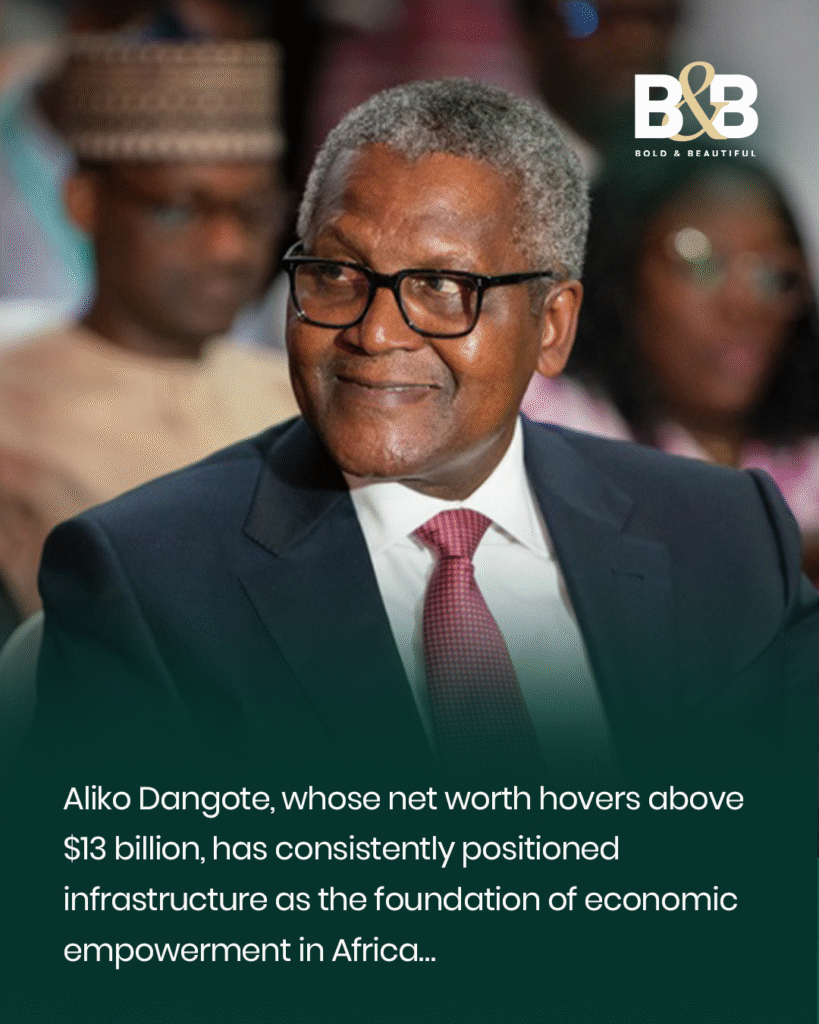
The development, still in early-stage negotiations with relevant federal and state authorities, is expected to adopt cutting-edge logistics and automation systems, making it one of the most advanced ports in West Africa. It will prioritise bulk cargo, container handling, and oil exports—strategic to Dangote’s refinery exports and Nigeria’s diversification from crude dependence.
Aliko Dangote, whose net worth hovers above $13 billion, has consistently positioned infrastructure as the foundation of economic empowerment in Africa. From cement to sugar, fertiliser to petroleum, his empire is structured around core production capabilities tied directly to logistics control.
This port project follows a global pattern of industrialists investing in ports to control both ends of the supply chain. The move echoes similar investments by billionaire peers in Asia and the Middle East, placing Dangote in a class of global players who are reshaping regions through integrated infrastructure.
Critics have often questioned the concentration of infrastructure in the hands of a few, but supporters argue that Dangote’s consistency in delivery and long-term investment vision is exactly what Nigeria needs.
The new port is projected to create thousands of direct and indirect jobs, reduce logistics costs for manufacturers, and speed up import-export timelines—key for positioning Nigeria as a competitive regional trade hub under the African Continental Free Trade Agreement (AfCFTA).

